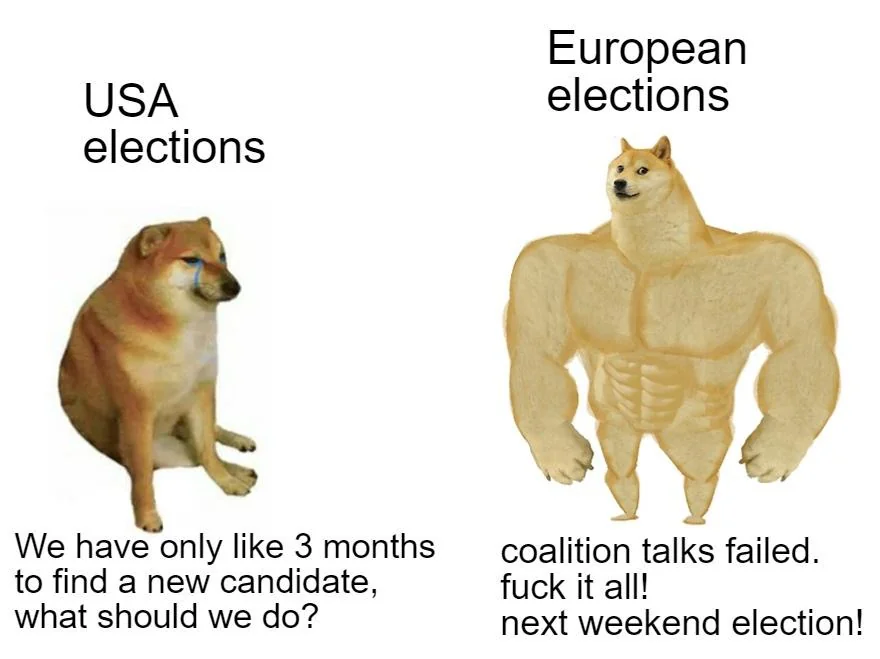this post was submitted on 22 Jul 2024
858 points (96.8% liked)
Political Memes
5669 readers
2604 users here now
Welcome to politcal memes!
These are our rules:
Be civil
Jokes are okay, but don’t intentionally harass or disturb any member of our community. Sexism, racism and bigotry are not allowed. Good faith argumentation only. No posts discouraging people to vote or shaming people for voting.
No misinformation
Don’t post any intentional misinformation. When asked by mods, provide sources for any claims you make.
Posts should be memes
Random pictures do not qualify as memes. Relevance to politics is required.
No bots, spam or self-promotion
Follow instance rules, ask for your bot to be allowed on this community.
founded 2 years ago
MODERATORS
you are viewing a single comment's thread
view the rest of the comments
view the rest of the comments

So the UK is probably the simplest to discuss because it doesn't have a constitution, and this means parliament is sovereign and decides everything by a simple majority vote.
They can pass laws saying that certain things need a super majority, but then they can just turn round and unpass them as well
This means that what you think of as the executive, i.e. the prime minister and all his helpers, can be changed by a simple majority, and an election can be called by one. They don't need to happen at the same time. The last parliament had three different prime ministers without an election, and it's common to switch prime ministers well before an election in order to create an incumbent advantage.
This makes sense also. Thank you for teaching.
I'm looked up UK's parliamentary party composition. There's three major parties. And, if one adds up all the minor party seats they hold like 7%.
What isn't this system suffering two-party dichotomy as seen in the US? In this I can quickly understand how deep cultural roots may be a significant factor. But, are there also systemic checks and balances that keep third parties alive? Is it as simple a core difference as ballot access?
It does. The UK sucks too because it doesn't have proportional representation. But that's a whole separate problem.
What basically makes it suck a little less than the US is each seat only receives tens of thousands of votes, so it's possible for local interests to do well in particular seats and get a little bit more diversity.
It does suffer from it.
We are a two party system. It's just one of them has suffered such a catastrophic loss in vote share that it looks like there's three main parties.
It's extremely regional. In most of England it's Labour vs Tories. In some southern areas it's Lib Dem vs Tories. In Scotland mostly the SNP vie with Labour for control. Northern Ireland is DUP (Tory aligned, but we only remembered they existed when they had to prop the Tories up) vs Sinn Fein. Wales is mostly Labour vs Tory with Plaid Cymru thrown in.
The minor parties are competitive in a handful of locations, so only Labour and Tories can actually win control.
In a Parliamentary system, you win a seat if enough people in one constituency like you. If the US had a similar system, the 'Fuck NYC' party might win upstate New York. In the UK, such local parties include the SNP in Scotland, the Liberal Democrats in southern England, SF and the DUP in Northern Ireland, and PC in Wales. None of them can win across the UK, but they often end up as kingmakers if neither of the big parties can get a majority. If that happens, they can then demand some benefits for the regions they represent.